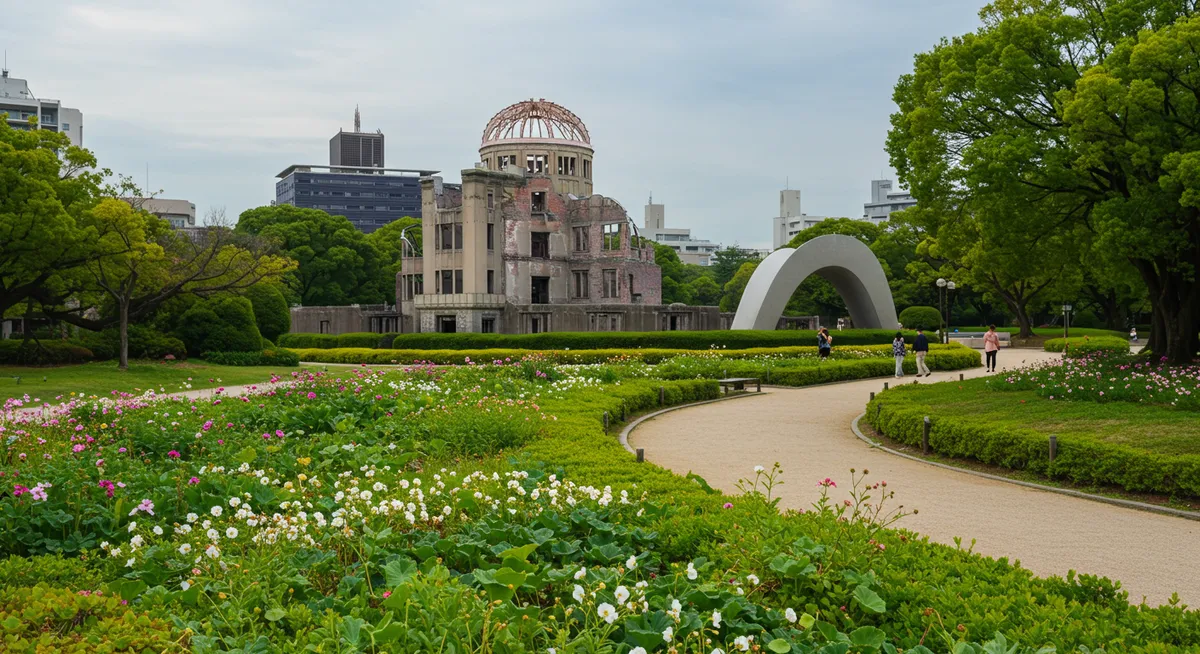
Top Hiroshima Gardens & Botanical Parks to Explore
Table of Contents
Want to find the best nature experiences for this destination? Chat with our nature tourism specialist!
Get Nature TipsCategory: hiroshima-gardens-and-botanical-parks
Discovering Serenity: Hiroshima's Gardens and Botanical Parks
Having explored Japan's serene landscapes for over a decade, I've always found unique solace in its urban green spaces. Hiroshima, renowned for its resilience and history, also boasts an impressive array of exquisite gardens and botanical parks. These verdant havens provide a tranquil escape, offering a beautiful counterpoint to the city's poignant historical sites. Whether you're seeking a moment of reflection, a picturesque stroll, or an immersion in diverse flora, the Hiroshima gardens and botanical parks offer a truly restorative experience. My personal journey through these spaces has always left me feeling refreshed and deeply connected to nature's enduring artistry. Let's delve into these beautiful spots.
Shukkei-en Garden: A Masterpiece of Miniature Landscapes
Shukkei-en, meaning "縮景園" or "shrunken scenery garden," is Hiroshima's quintessential traditional Japanese garden. Established in 1620, it masterfully recreates miniature versions of mountains, valleys, and forests around a central pond. Visitors can wander across charming bridges, past tea houses, and through meticulously shaped pine trees. This garden is a testament to perseverance, having been remarkably restored after the atomic bombing. My tip for Shukkei-en is to take your time; find a bench by the pond and simply observe the koi and the reflections. It’s an ideal place to reflect and appreciate the artistry of traditional Japanese landscape design. For more on the city's natural allure, consider exploring other Hiroshima nature attractions.
Hiroshima Botanical Garden: A World of Flora
Perched on a hillside overlooking the Seto Inland Sea, the Hiroshima Botanical Garden is a sprawling haven dedicated to the diverse plant life of Japan and beyond. With over 230,000 plants representing 10,000 species, it features various themed sections, including a large conservatory, a camellia garden, and a peony garden. The garden offers stunning panoramic views, making it a favorite for photographers and nature enthusiasts alike. It’s quite accessible, and you could easily spend half a day exploring its different biomes. I always recommend checking their seasonal blooming calendar before visiting to ensure you catch the most vibrant displays, especially if you're interested in particular flowers. This botanical park is a living classroom and a serene escape.
Peace Memorial Park: Contemplative Green Spaces
While not a traditional botanical garden, the Hiroshima Peace Memorial Park holds immense significance and offers expansive, beautifully maintained green spaces vital for quiet contemplation. The park is home to the Cenotaph for the A-bomb Victims, the Flame of Peace, and various monuments surrounded by lawns and carefully planted trees. Its design encourages introspection and remembrance, providing a solemn, yet naturally beautiful environment. Visitors often find solace walking through these grounds. For those seeking more general best parks in Hiroshima for nature, the Peace Memorial Park offers a unique blend of historical importance and open, green tranquility, making it a must-visit for understanding Hiroshima's spirit.
Frequently Asked Questions
When is the best time to visit Hiroshima gardens?
Are the gardens in Hiroshima accessible for all visitors?
From the meticulously crafted miniature landscapes of Shukkei-en to the diverse botanical collections of the Hiroshima Botanical Garden and the contemplative green spaces of the Peace Memorial Park, Hiroshima gardens and botanical parks offer unparalleled opportunities for reflection and enjoyment of nature. Each site provides a unique experience, enriching your understanding of the city's beauty and resilience. I truly believe these green havens are essential stops for any visitor. Plan your visit to immerse yourself in the natural tranquility and discover the enduring beauty of Hiroshima.